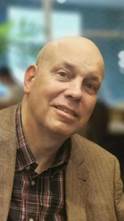Invited by Professor Wang Shengli, Professor Nan Zhongren, Associate Professor Hu Yahui from the Research Center for Northwest Soil and Groundwater Pollution Prevention and Control Technology, and Professor Zhang Jinlin from the College of Grassland Agriculture, Professor Christopher Rensing, a Fellow of the American Society for Microbiology, presented an academic lecture on November 18, 2023. The details are as follows:
Lecture Title: Adaptive Mechanisms of Strain Achromobacter sp. As-55 to Arsenic/Antimony Exposure
Time: November 18, 2023 (Saturday) 15:30-17:00
Venue: Room 1615, Guanyun Building

Expert Profile:
Christopher Rensing, Ph.D., Professor, Fellow of the American Society for Microbiology, Professor at the University of Copenhagen in Denmark, Distinguished Professor at Fujian Agriculture and Forestry University, Visiting Professor at Lanzhou University, Huaqiao University, Nanjing Agricultural University, the Institute of Urban Environment, Chinese Academy of Sciences, and King Saud University in Saudi Arabia. In 1997, he was awarded the "National Research Service Award" by the National Institutes of Health in the United States. From 2017 to 2019, he was included in the fifth batch of the "Hundred Talent Program" in Fujian Province. In 2020, he received the "Friendship Award" from the Fujian Provincial Government, and in 2021, he was elected as a Fellow of the American Society for Microbiology.
Professor Rensing has led national natural science foundation projects, the Thousand Talents Program in Fujian and Yunnan provinces, among others. He has published 323 SCI papers in high-impact journals, including 4 in PNAS, 1 in Nature Review Microbiology, with an h-index of 65, consistently ranking among the top 1% of scientists globally in his field. His research focuses on the study of the interaction between microorganisms and metals, metalloids, and antibiotics, the occurrence of significant oxidation events, and the biogeochemical cycles of metals such as arsenic, cadmium, zinc, and copper. His work also encompasses comprehensive prevention and control techniques for agricultural non-point source and heavy metal-polluted farmland, as well as the development of microbial metal tolerance and evolution mechanisms.
College of Earth and Environmental Sciences
November 22, 2023